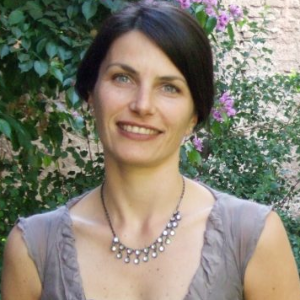
- This event has passed.
Oriana Bernasconi: Documenting Atrocities: Human Rights Archives, Technologies of Resistance, and Insurgent Knowledge
September 28, 2021 @ 1:15 pm - 2:15 pm
Event Navigation

“Documenting atrocities: Human Rights Archives, atrocities artifacts & insurgent knowledge”
Abstract
As Bickford et al. state, the “modern human rights movement has relied on documents of all forms since its earliest days”.[1] The documentary material that offers evidence of atrocities takes myriad forms. It includes handwritten testimonies and first-hand oral stories, letters written from concentration camps, declarations by survivors, relatives and witnesses, drawings recreating places of imprisonment or the practices of torture, clandestine magazines and pamphlets printed in secret, graffiti denunciations on city walls, photographs, videos, audio recordings, personal objects, press clippings and radio news, documents produced by official agencies or local bureaucrats, police archives, and perpetrator confessions.
These social objects inscribe and corroborate human rights violations. They name criminals and identify practices and places of repression. They help to reveal the mechanisms with which terror operates. They tell of different forms of dealing with harm, dispossession, and mourning. And they also bear witness of practices of denunciation and resistance to violence.
The aim of this talk is to discuss the social uses and effects of these objects –that we might call ‘atrocity artefacts’–, as political technologies contributing to the production of insurgent knowledge and shaping non-violent ways of resistance to political violence.
Examining uses and effects of different human rights archives that inscribe massive human rights violations committed in the last decades in South America we will understand these artefacts amidst scenes of struggle and social and political transformations both past and present. We will raise questions such as the transposition, transformation and mobility of atrocity’s artefacts over time and the potentiality of these objects for instituting and organizing the social world, enrolling and socializing actors or propelling cognitive, aesthetic and moral processes around which different communities may deal with turbulent episodes and reinforce human rights protection.
[1] Bickford, Louis, Patricia Karam, Hassan Mneimneh and Patrick Pierce. Documenting Truth. New York: International Center for Transitional Justice, 2008, p.3.
Oriana Bernasconi is associate professor and director of the PhD programme in Sociology at the Department of Sociology, Universidad Alberto Hurtado, Chile. Founder and Co-director of Alberto Hurtado University Human Rights and Memory Interdisciplinary Research Programme: https://memoriayderechoshumanosuah.org/.
She holds a PhD in Sociology from the London School of Economics and Political Science, and a Master degree (MPhil) in Cultural Studies and Sociology from Birmingham University. Since 2015 she has been the lead researcher on a number of projects on the documentation of past atrocities its uses and effects in different areas of social life in Chile and recently, in Mexico and Colombia. These projects involve association with memory archives, sites and museums. Her last research “Political Technologies of Memory” was recognized with the Newton Fund Chair’s Prize for the Americas.
Currently she is the director of the Anillos de Investigación en Ciencias Sociales SOC180005 (2019-2021) project entitled “Political Technologies of Memory: Contemporary uses and appropriation of past human rights violations registry devices in Chile” funded by Chilean Commission on Science and Technology and developed in association with the Universidad Austral and the National Museum of Memory and Human Rights of Chile. She leads the Fondecyt project “Beyond the Victim Paradigm: a genealogy of the devices that perform the subject of political violence. Chile, 1973-2018” funded by the Chilean Commission on Science and Technology (2019-2021). Oriana is also co-researcher of the British Academy’s Sustainable Development Programme 2018 project “Documentality and Display: Archiving and curating the violent past in contemporary Argentina, Chile and Colombia” (lead researcher Prof. Vikki Bell, Goldsmiths College, University of London).
Her last book “Resistance to Political Violence in Latin America. Documenting Atrocity” (Palgrave, 2019); translated as “Documentar la Atrocidad. Resistir el Terrorismo de Estado” (Ediciones Alberto Hurtado 2021) provides in-depth analysis on state violence documentation, denunciation and resistance and how it affected civilians, activists and victims. She has published in Subjectivity, Sociology, Symbolic Interaction, Discourse & Society, International Journal of Transitional Justice, Qualitative Sociological Research, among other journals.
Science, Technology, and Human Rights Fall Speaker Series
 How have science and technology historically shaped understandings of human rights? How have human rights frameworks shaped the creation and use of scientific and technological capabilities? This speaker series explores the relationship of science and technology to ideas about human rights over time, including how science and technology have been mobilized historically in the defense of human rights and to assist in the pursuit of truth and justice after atrocity. The series is tied to the fall semester course STS.458 Science, Technology, and Human Rights.
How have science and technology historically shaped understandings of human rights? How have human rights frameworks shaped the creation and use of scientific and technological capabilities? This speaker series explores the relationship of science and technology to ideas about human rights over time, including how science and technology have been mobilized historically in the defense of human rights and to assist in the pursuit of truth and justice after atrocity. The series is tied to the fall semester course STS.458 Science, Technology, and Human Rights.
All talks are open to the public.
MIT STS Faculty and Moderator:
Prof. Eden Medina, Associate Professor of Science, Technology, and Society (STS)
PRE-REGISTRATION REQUIRED: https://mit.zoom.us/webinar/register/WN_RSSdBUotRcmAQ1zH8PU8gw